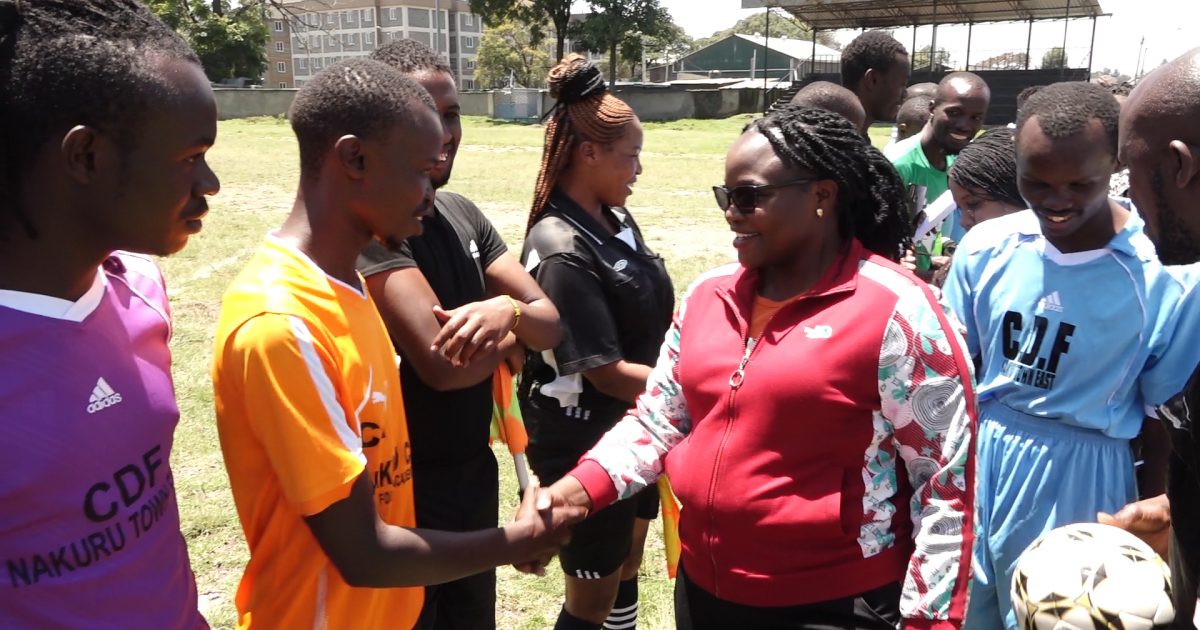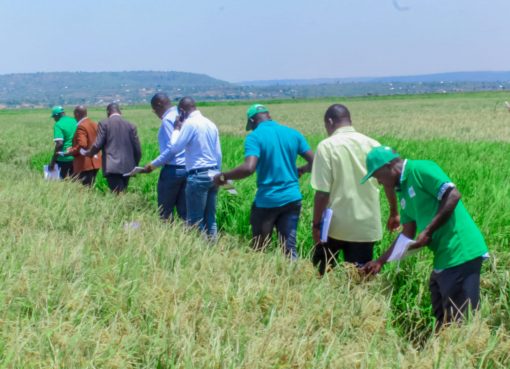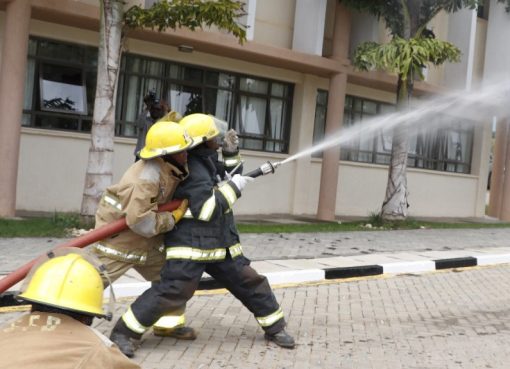Sexual and Reproductive health activists have called for prioritization of programs towards preventing unintended pregnancies as a way of ending cases of unsafe abortion.
The activists have petitioned both the national and county governments to invest more in comprehensive sexual and reproductive health services and information, adding that when girls and women have access to correct, accurate, affordable and quality sexual and reproductive health information and services, they are more likely to delay their first pregnancy.
The Kenya Legal & Ethical Issues Network on HIV and AIDS (KELIN) Programmes Officer Ms Dorcas Nyambura noted that unsafe abortion has become a public health concern following an increased number of cases reported and deaths.
Speaking in Nakuru during celebrations to mark International Safe Abortion Day, Ms Nyambura indicated that millions of shillings are spent on post-abortion care, putting a strain on the country’s health care resources.
“Post-abortion care is a direct consequence of unsafe abortion. Providing women with better access to affordable and quality safe abortion services can help reduce maternal deaths caused by unsafe abortion,” noted the Programmes Officer.
During the occasion County Executive Committee Member (CECM) in Charge of Youth, Sports, Gender, Social Services and Inclusiveness Ms Josephine Achieng launched a football tournament sponsored by KELIN, Nakuru Reproductive Health Network and Reproductive Health Champions Organisation (RHCO) aimed at campaigning against Sexual and Gender Based Violence.
Ms Nyambura also appealed to the government to safeguard sexual violence survivors’ right to access safe abortion adding that many women and girls resort to unsafe methods due to stigma, misinformation and fear of violence.
“We need to acknowledge that survivors of sexual violence who are in need and qualify for safe abortion should receive that service at the nearest possible health facility,” noted Ms Nyambura.
According to a report by the Ministry of Health, treatment of unsafe abortion complications cost the public health system about Sh500 million annually.
The report, done in collaboration with African Population and Health Research and Ipas, is titled ‘The Costs of Treating Unsafe Abortion Complications in Public Health Facilities in Kenya’.
The study further showed that treatment of unsafe abortions is costly to the public health system with the average cost of the treatment ranging from Sh 3,264 for mild complications to Sh 9,133 for severe complications per patient.
In Kenya, abortion is restricted. The law permits it under certain circumstances. An example of circumstances where abortion is permitted as per Article 26 (4) include in the opinion of a trained health professional, the need for emergency treatment, or if the life of the mother is in danger, or if permitted, by any other written law.
But according to Ms. Nyambura, the prevalence of unsafe abortion tends to be higher in countries where abortion is illegal or restricted.
“Everywhere in the world, the rate of abortion is the same, but the difference is, where there are restrictions, there are more cases of unsafe abortion because women resort to unqualified personnel in the backstreets due to stigma, and for fear of prosecution,” indicated the Programs Officer.
She said generally, including in Kenya, unsafe abortion is mostly reported among poor or otherwise marginalised women, individuals who are not able to afford services from a trained medical practitioner.
“Cases of unsafe abortion are also more in rural areas, and among people with less education, and cuts across ages, but is more observed in young adults, and older women,” said Ms Nyambura.
According to the programme officer, to prevent unsafe abortions and deaths, there is a need to prevent unwanted pregnancy, by expanding access to contraceptives.
Nationally, as per KDHS 2022 report, uptake of family planning in Kenya stands at 63 per cent, of which, 57 per cent represents those using modern family planning methods, whereas six per cent represents traditional methods.
She added that youth should be provided with sex education, to enable them to know what options are in place, to prevent unintended pregnancies.
Executive Director of Nakuru Reproductive Health Network (NRHN) Mr Martin Lunalo urged the government to reinstate Standards and Guidelines for Reducing Morbidity and Mortality from Unsafe Abortions in Kenya which had been introduced in 2012 but were suspended in 2014.
The document guided health professionals on how, when and where to conduct abortion.
It allowed safe abortions to be performed by a trained and skilled health professional in health facilities that met minimum standards.
Though the withdrawal of the Standards and Guidelines was successfully challenged at the High Court in Nairobi, they are yet to be reinstated.
Mr Lunalo said lack of access to safe, affordable, timely and respectful abortion care threatens the physical and mental well-being of women.
“Unsafe abortion is financially expensive. No safe abortion is offered in any public health facility in Kenya. Safe abortion services can only be found in a few private hospitals at a higher cost and has frequently become the privilege of the rich, while poor women have little choice but to resort to unsafe providers, causing deaths and morbidities that become the social and financial responsibility of the public health system,” he added.
Mr Lunalo called on the government to update the Penal Code to align it with the Constitution.
Article 158 of the Penal Code punishes an individual with 14 years jail term for being guilty of a felony arising from unlawfully assisting a woman to procure an abortion.
“Amending laws that are against abortion can also help reduce abortion mortality. By amending the law to only allow skilled practitioners to practice safe abortion services will discourage people from going to quacks,” Mr Lunalo said.
He added “Evidence shows that restricting access to abortion does not reduce the number of abortions. What it does is increase the likelihood of an unsafe procedure. According to the Guttmacher Institute, in countries with the least restrictive abortion laws, less than one per cent of abortions are typically unsafe. In the most restrictive, that number goes up to 31 per cent.”
According to the World Health Organisation Unsafe abortion is one of the four main causes of maternal mortality and morbidity in the world. An estimated 22 million abortions continue to be performed unsafely each year worldwide, resulting in the death of an estimated 47 000 women and disabilities for an additional 5 million women annually. Most of these unsafe abortions occur in developing countries where abortion is legally highly restricted.
The County Executive Committee Member in Charge of Youth, Sports, Gender, Social Services and Inclusiveness announced that the devolved unit’s administration had launched the construction of a Sh90 million Gender-Based Violence (GBV) rescue centre where victims of gender violence can seek help in case of abuse.
The center in Gilgil constituency is the first of its kind in the devolved unit.
Ms Achieng said the centre is a milestone for the county as it will provide shelter to victims of gender violence some who have been living on the streets, corridors and markets.
“This is not to say that we’re encouraging GBV in our society. We will not allow people to walk out of their homes on the slightest excuse to come and stay here. The days when people treated their spouses like personal property and assaulted them at will are long gone,” she said.
According to the Executive the first phase of the project will involve construction of a hostel, multipurpose rooms and Counseling cubicles.
She disclosed that this will be the second facility of its kind in the country after the one in Makueni County.
Ms Achieng stated that the center will be run by professionals who will conduct thorough vetting before admitting those seeking to be accommodated to weed out undeserving cases out for free accommodation.
She said the center will help in tracking GBV incidents in the 11 sub counties to ensure a proper database that would inform government interventions.
“Our preliminary studies have indicated that most of those who get involved in GBV abuse alcohol and drugs. Others are still trapped in outdated cultural beliefs and they assault their wives as a way of asserting themselves,” she said.
The Executive went on “We are engaging faith-based organizations, religious and community leaders to join hands with the national and county government in fighting this vice.”
She stated that the County Government would establish gender-based violence (GBV) rescue centers in all the 11 constituencies to limit violence and offer counseling services to victims of GBV.
“Our statistics indicate that the number of men who have been assaulted or experienced violence in the past one and half years has significantly gone up, though their number, compared to women, is lower.
Wife battering, defilement, rape, early marriages and pregnancies were some of the forms of violence meted on women and children in the 11 constituencies,” she noted.
By Jane Ngugi and Dennis Rasto





